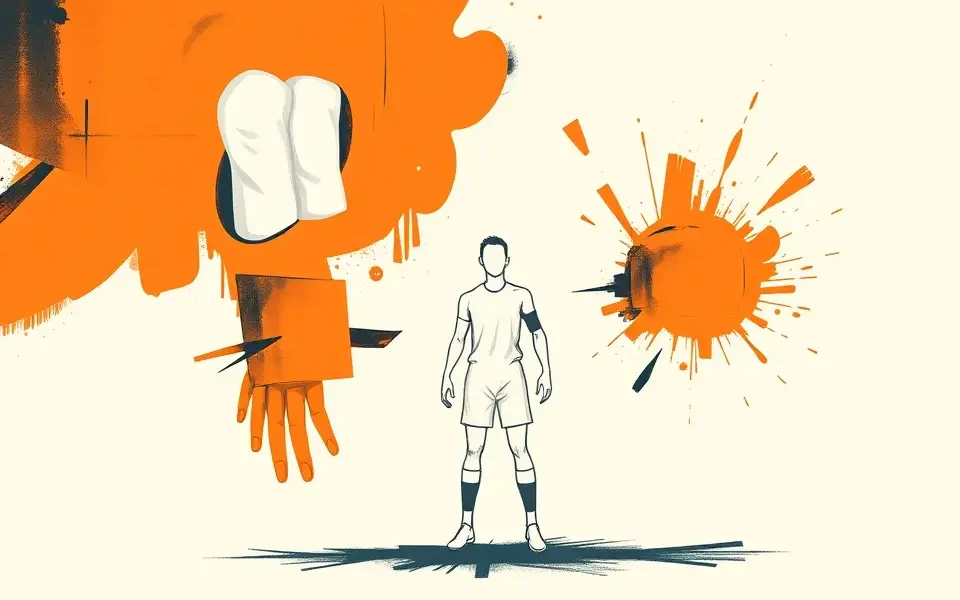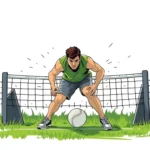Jack Draper’s recent condemnation of online trolls is a powerful serve in the ongoing battle against online abuse in tennis and sports in general. His stance highlights the pervasive and damaging effects of online harassment, particularly on athletes, and underscores the need for greater awareness, support, and effective solutions to combat this issue.
The Rising Tide of Online Abuse in Tennis
In recent years, online abuse targeting tennis players has become increasingly rampant. Social media platforms, while offering a direct line of communication between athletes and fans, have also become breeding grounds for negativity, hate speech, and even death threats. This abuse often stems from disgruntled gamblers, anonymous trolls, or individuals with malicious intent, creating a toxic environment for players.
Several high-profile tennis stars have spoken out about their experiences with online abuse, shedding light on the severity of the problem:
- Katie Boulter: The British No. 2 revealed she received vile abuse and death threats after matches, including one message threatening to damage her grandmother’s grave.
- Coco Gauff: The young American star has denounced gamblers as “annoying” and shared her strategy of blocking their profiles to mitigate the impact of online harassment.
- Caroline Garcia: The French player disclosed hateful messages urging her to “kill herself” and insulting her mother, prompting widespread condemnation from fellow players like Iga Swiatek and Danielle Collins.
- Emma Raducanu: Faces a barrage of abuse if she loses, and more abuse if she doesn’t play.
Jack Draper himself has been a target of online trolls. He recalled how, after winning his first professional match in 2018, he was labeled a “horrible” person, and some trolls even attempted to target his mother. He also noted that regardless of whether he wins or loses, he receives hundreds of hateful messages.
Draper’s Stand: A Much-Needed Response
Draper’s recent condemnation of online trolls is a welcome and necessary response to this growing problem. By speaking out, he not only validates the experiences of other players who have been targeted but also helps to raise awareness among fans, media, and governing bodies.
Draper’s remarks carry significant weight due to his rising prominence in the tennis world. As one of the youngest and most promising British players, his voice resonates with a wide audience, including young fans who may be particularly susceptible to the influence of online culture.
Furthermore, Draper’s comments challenge the notion that online abuse is simply an unavoidable part of being a professional athlete. By refusing to accept it as the norm, he encourages a more proactive and responsible approach to addressing the issue.
Why Trolling is Unacceptable
Trolling and online abuse are unacceptable for several reasons:
- Mental Health Impact: Online harassment can have a devastating impact on the mental health and well-being of athletes. The constant barrage of negativity, insults, and threats can lead to anxiety, depression, self-doubt, and even suicidal thoughts.
- Performance Interference: The stress and emotional distress caused by online abuse can negatively affect an athlete’s performance on the court. It can be difficult to focus and maintain composure when constantly bombarded with hateful messages.
- Family Impact: Online trolls often target the families and loved ones of athletes, causing additional pain and suffering. This can be particularly distressing for players who are already under immense pressure to perform.
- Erosion of Sportsmanship: Online abuse undermines the principles of sportsmanship and fair play. It creates a toxic environment that discourages respect, empathy, and positive engagement between athletes and fans.
Potential Solutions and Ways to Combat Online Abuse
Addressing the issue of online abuse in tennis requires a multifaceted approach involving players, governing bodies, social media platforms, and fans. Here are some potential solutions:
- Increased Awareness and Education: Raising awareness about the impact of online abuse and educating players, fans, and the general public about responsible online behavior is crucial. This can involve campaigns, workshops, and educational resources.
- Stronger Social Media Policies: Social media platforms need to implement stricter policies and enforcement mechanisms to combat online abuse. This includes:
- Improved Reporting Systems: Making it easier for users to report abusive content and ensuring that reports are promptly and effectively addressed.
- Account Verification: Requiring users to verify their accounts to reduce anonymity and deter trolling behavior.
- Content Moderation: Employing AI-powered tools and human moderators to identify and remove abusive content proactively.
- Banning Abusers: Imposing permanent bans on users who engage in repeated or severe instances of online abuse.
- Support and Resources for Players: Providing players with access to mental health professionals, support groups, and resources to help them cope with online abuse is essential. This can include:
- Confidential Counseling: Offering confidential counseling services to players who are struggling with the emotional impact of online harassment.
- Media Training: Providing media training to help players develop strategies for responding to online abuse and managing their online presence.
- Peer Support: Facilitating peer support groups where players can share their experiences and offer each other encouragement.
- Legal Action: In cases of severe online abuse, such as death threats or stalking, legal action may be necessary. Players should be encouraged to report such incidents to law enforcement and pursue legal remedies.
- Fan Responsibility: Fans have a crucial role to play in combating online abuse. This includes:
- Reporting Abusive Content: Reporting abusive comments and messages to social media platforms.
- Promoting Positive Interactions: Engaging in respectful and constructive online discussions.
- Supporting Players: Showing support and encouragement to players, both on and off the court.
- Calling Out Abusers: Challenging and calling out individuals who engage in online abuse.
- Collaboration and Partnerships: Collaboration between tennis governing bodies, social media platforms, law enforcement agencies, and mental health organizations is essential to develop and implement effective solutions to combat online abuse.
- AI-Powered Solutions:
- Sentiment Analysis: AI can be used to analyze the sentiment of online comments and identify potentially abusive content.
- Threat Detection: AI can be trained to detect threats and other forms of harmful content in real-time.
- Automated Moderation: AI can be used to automate the process of content moderation, helping to remove abusive content more quickly and efficiently.
The Path Forward: Creating a More Positive Online Environment
Jack Draper’s condemnation of online trolls is a significant step forward in the fight against online abuse in tennis. By speaking out, he has not only raised awareness about the issue but also inspired others to take action.
However, much work remains to be done. It is crucial for all stakeholders to work together to create a more positive and supportive online environment for athletes. This requires a collective commitment to promoting responsible online behavior, implementing effective policies, and providing players with the resources they need to cope with online abuse.
By embracing these strategies, the tennis community can create a more inclusive and respectful online environment where athletes can thrive without fear of harassment and abuse.








No Comment! Be the first one.